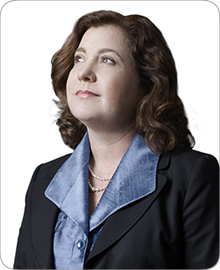 |
|
Janice Eberly
‘There’s no scope for becoming stale in this economy’
As we focus on the scale and dynamism of the global economy, the differences that can divide societies, countries and individuals don’t simply disappear. These rifts can generate risks — or the motivation to build bridges or even leap across the divide.
We’ve seen this in the Euro zone, where the common currency has improved price stability and prosperity, but has not bridged the gaps in those nations’ fiscal positions and productivity. These differences are now reverberating in the European sovereign debt crisis. The rise of China and other emergent economies has reduced global inequality,
but has raised other humanitarian and pragmatic concerns for business and policy. Institutional and incentive weaknesses were exposed by the financial crisis and the recession. Firms, business schools and policymakers continue to work through and process these lessons and how best to respond to them.
Firms need capital to fuel their growth, so the finance function remains crucial for startups, ongoing businesses, economies and nations. Students still need a strong fundamental understanding of valuation and capital markets. In fact, that understanding is even more important, because the value of getting things right is so high. Leaders within an organization need to understand not only the information within models, but also the strengths and the weaknesses of those models and how to interpret them in a changing environment. They can’t just plug data into a spreadsheet and press a button. There’s a high payoff to staying current not only on the latest technical skills, but also on the latest thinking and ideas — and engaging those who question and challenge seemingly conventional ideas, because there’s no scope for becoming stale in this economy.
The global scale and speed of change magnifies the need for analytic thinking and decision making. There’s no lack of data — in fact, we’re awash in information. Today’s market and organizations demand agility, but also a robust analytic framework to interpret the vast amount of information that is available and potentially relevant. The hardest judgment call in the face of rapid change is to recognize what is passing and what is permanent. Global interactions are tighter and the pace of change is faster, so focusing narrowly on a particular industry or country is a short-term strategy. Individual pieces of data can be interesting, but overwhelming when taken out of context. There’s also a tendency to be reactive in the rush of high-frequency events. Fitting these individual phenomena together to see patterns and trends, asking what equilibrium will result from disparate forces — this requires higher-level, more agile thinking: thought leadership.
Janice Eberly is the John L. and Helen Kellogg Professor of Finance. An expert on finance and macroeconomics, she serves on the Congressional Budget Office’s Panel of Economic Advisers.


